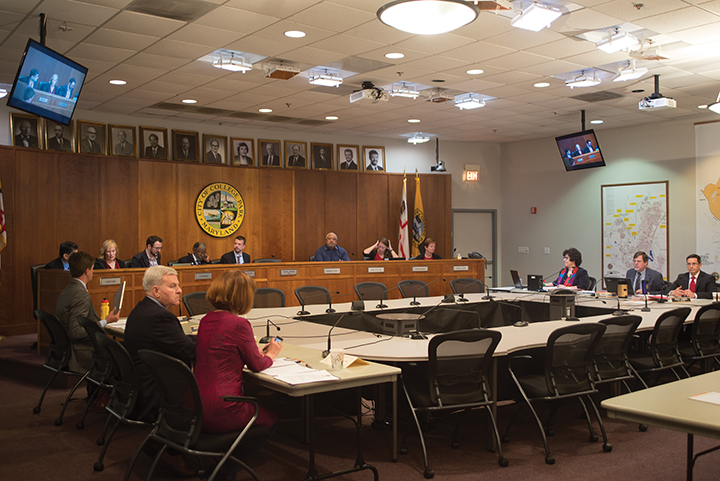Views expressed in opinion columns are the author’s own.
Unsustainability defines the last 250 years of human history. Industrial factories spew smoke into the atmosphere, light bulbs burn off energy to make light and fuel-burning engines slowly consume the Earth’s fuel supply. If humanity is to win the fight to save the environment, we need to radically shift the structure of our society. Or we could just ban Styrofoam, as the College Park City Council recently discussed.
At least you can’t accuse the council of being reckless. The federal government has withdrawn from the fight against climate change and environmental destruction. Without Congress and the president, environmental leadership falls to local governments. Instead of making small, easy changes, cities and states need to be willing to make major sacrifices. Switching to plastic cups is not enough. As it turns out, saving the world is hard work.
[Read more: College Park discusses possible styrofoam ban after county issued similar policy in 2016]
To be fair, banning Styrofoam will help protect the environment. Styrofoam takes hundreds of years to decay and often contaminates waterways and other habitats. It should certainly be banned. But that should’ve happened years ago, when environmental disaster could have been prevented. Regulations like banning Styrofoam are far too narrow to make a difference now.
A similar attitude infects climate change debate. Politically popular policies are not strong enough to make an impact. While environmental destruction and climate change are separate problems, the two are complexly and inexorably linked. Our solutions for the climate crisis will impact the environment. Therefore, we must attack both issues immediately and forcefully if we hope to secure a recognizable future. We are no longer working to avoid an environmental disaster. We’re fighting one that’s already here.
The city council’s deliberations on Styrofoam come alongside similarly tepid environmental efforts by the University of Maryland. President Wallace Loh’s “Campus Climate Action 2.0” plan gives this university a staggering 33 years to become carbon-neutral. Both plans fail to address the immediate threats of climate change and environmental destruction. They get good press and let advocates feel like they’re helping, but they don’t substantially change the systems that lead to unsustainability and environmental degradation.
We are rapidly approaching a point where keeping the Earth habitable and protecting our ecosystems will be mutually exclusive. As climate change is left unchecked, sustainability will no longer be a viable solution. Climate change will be a problem of engineering, rather than policy. The increasing need for dams, levees and seawalls will profoundly alter the face of our planet.
As the earth continues to warm, engineers will have to use even more extreme measures. One such proposal is the “Bering Strait Seawater Deflector,” which would restrict the movement of water between the Pacific and Arctic Oceans. The plan would help mitigate the worst effects of sea level rise, but it would have an extremely damaging and unpredictable impact on the local ecosystem. We need to act now so such extreme measures are not necessary. If we continue to act slowly on environmental issues, we will no longer be able to coexist with the global ecosystem. We will have to crush it to survive.
Fighting climate change and environmental destruction will require substantial sacrifices. In one way or another, everyone on Earth will feel the costs of the fight. Unlike with the Styrofoam ban, those costs will not be trivial. The general manager of a local Smoothie King, when asked about the potential ban, noted that without Styrofoam cups his smoothies melt faster. But we need to be willing to sacrifice much more than the iciness of our beverages. If America refuses to fight ecological destruction because smoothie shops may lose a few customers, the environment of the future will be unrecognizable. And if we would rather our glaciers melt than our smoothies, the planet is doomed.
Nate Rogers is a freshman computer science major. He can be reached at nrogers2@terpmail.umd.edu.



